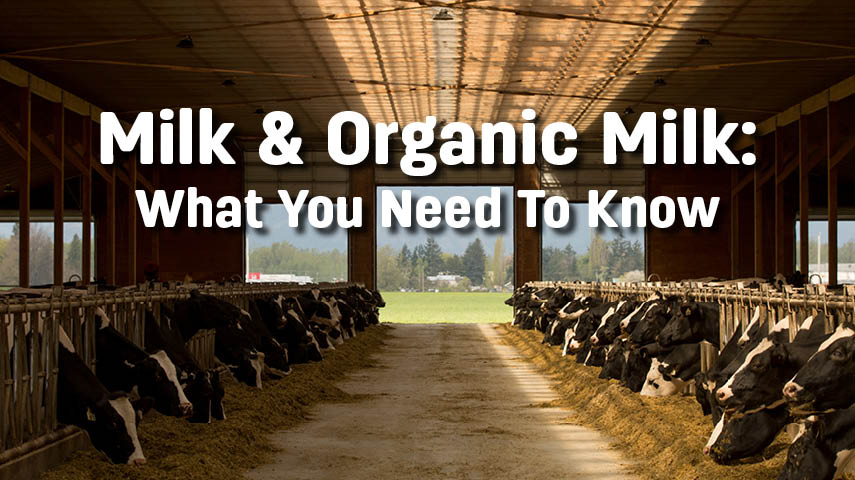Think you know the difference between organic and conventional milk? In this article we dispel the most common myths about milk and organic milk.
Dairy farming isn’t as cut-and-dried as a hip-roofed barn, a bucket, and a three-legged stool. Since those days, farms have grown; milking has become mechanized with parlours and robots, designed for ease and the comfort of cows. As the industry and consumers interests evolved, more options were created to expand consumer choice.
While this opened the markets for organic milk, it also churned myths regarding organic and conventional dairy products alike. We would like to take a moment to bust some of these legendairy milk myths.
Milk Myth #1: Organic milk is more nutritious
Research is currently being done to understand the nutritional differences in organic and conventional milk. While some studies indicate there are no differences, others suggest that organic products have higher levels of omega-3 fatty acids. Whichever milk you choose to drink, both are nutritious options!
Milk Myth #2: Organic farming means no pesticides on crops
Yes and no. Organic dairy farms don’t use synthetic pesticides. Whereas, a conventional dairy farmer could use synthetic pesticides, the organic farmer is only permitted to use natural pesticides outlined in the Canadian Organic Standards (COS) if he/she chose to.
Milk Myth #3: Organic cows are fed better
Conventional and organic alike, farmers agree that a well-fed cow is a healthy cow. A requirement of organic dairying is that, during grazing season, cows must receive around 30% of their dry feed as grass from the pasture. Aside from that, any total mixed rations (TMRs) and forages must certified organic.
Milk Myth #4: Organic cows are not provided medical care
It should be noted that animal care is important within the dairy industry, whether you farm organically or conventionally, so if an animal requires treatment it cannot be withheld.
Milk Myth #5: Organic cows are grass fed all year
Organic dairy cows must have access to pasture during the grazing seasons—spring and summer.
Milk Myth #6: Dairy barns are unkind to cows
All dairy farmers are required to build their barns up to par with the Code of Practice; modern barns allow for a controlled environment with free access to food sources and water. Many barns are equipped with fans for a cool environment, back-scratchers, and comfortable bedding for cattle.
Milk Myth #7: Dairy cows are treated with hormones to increase milk production
The use of artificial growth hormones in dairy were banned by Health Canada in 1999—all Canadian milk is free of artificial growth hormones. Therefore, when a cow achieves optimum milk production it is because she is healthy and well-nourished.
Milk Myth #8: Conventional farmers are in it for the money
Around 98% of farms in Canada are family owned and operated. Locally, the average B.C. farmer has approximately 130 cows in their herd. These herds are often inherited from the parents and grow with the family. Dairy farming is a matter of pride and tradition.
Milk Myth #9: Conventional cows don’t eat well
One of the main components of a dairy cow’s diet is called total mixed ration (TMR). Each TMR is tailored to the farmer’s preference for forage (hay, alfalfa, rye) and is blended with vitamins, minerals, healthy fats, and proteins—it’s all good stuff mixed together, to prevent the cow from separating out her favourite parts.
Milk Myth #10: Milk from conventional cows contains antibiotics
While cows on farms are treated with antibiotics if they are sick, to ship milk with antibiotics is against the law. All milk is tested before it reaches the dairy processors—if there is a trace of antibiotics in a shipment of milk, the shipment is disposed of and the farmer receives a fine.
Canadian farmers work hard to make sure that you get the best quality from cow to carton. If there is anything else to be said it is this: don’t just be one of the herd and get to know some of facts before believing some of these legendairy milk myths!



